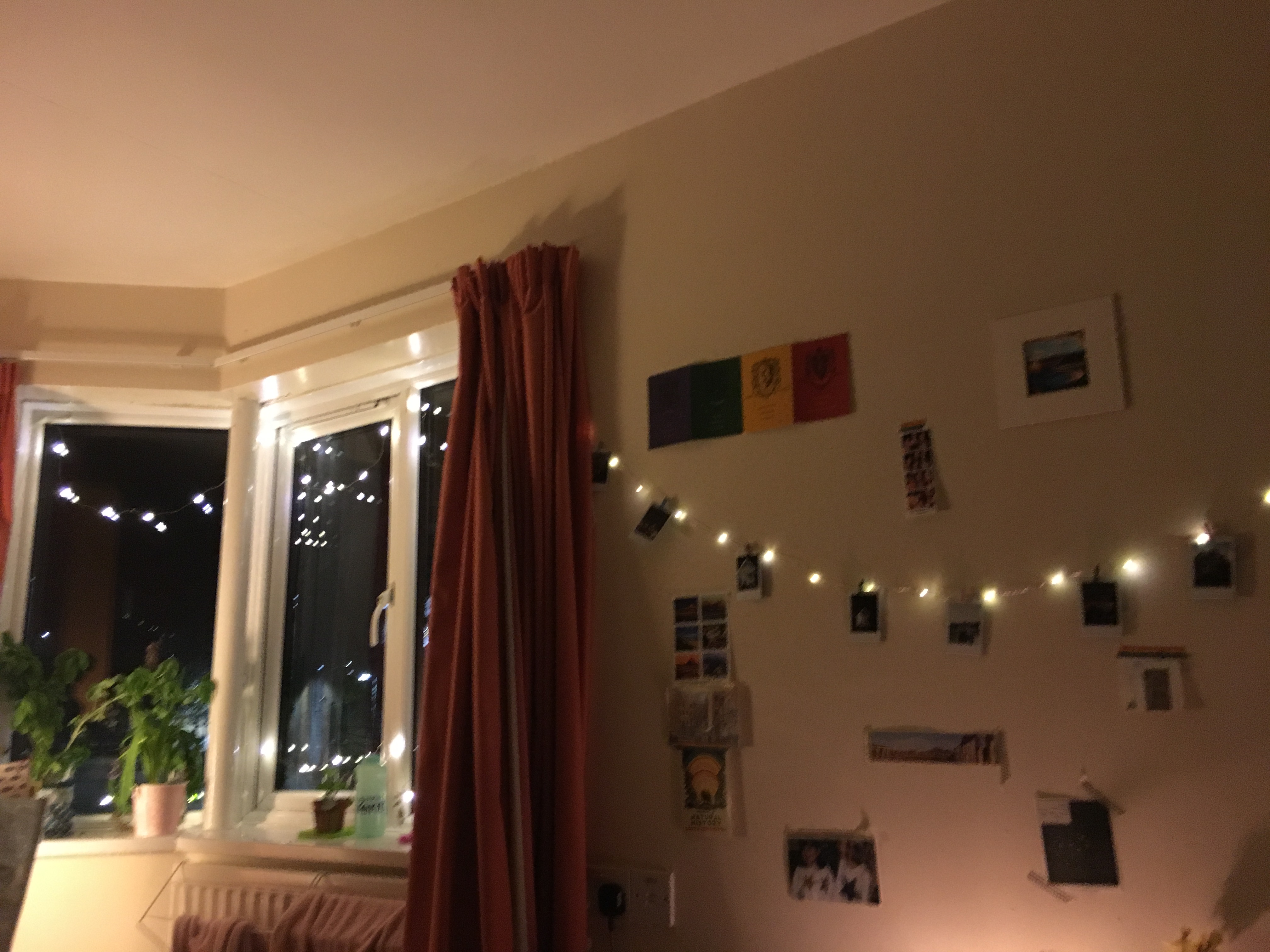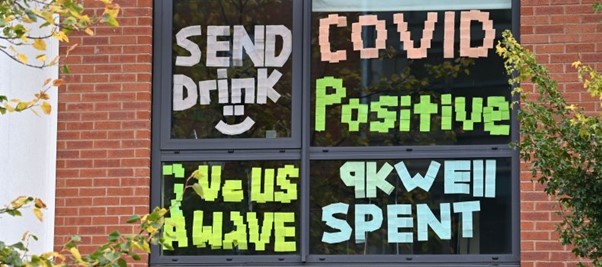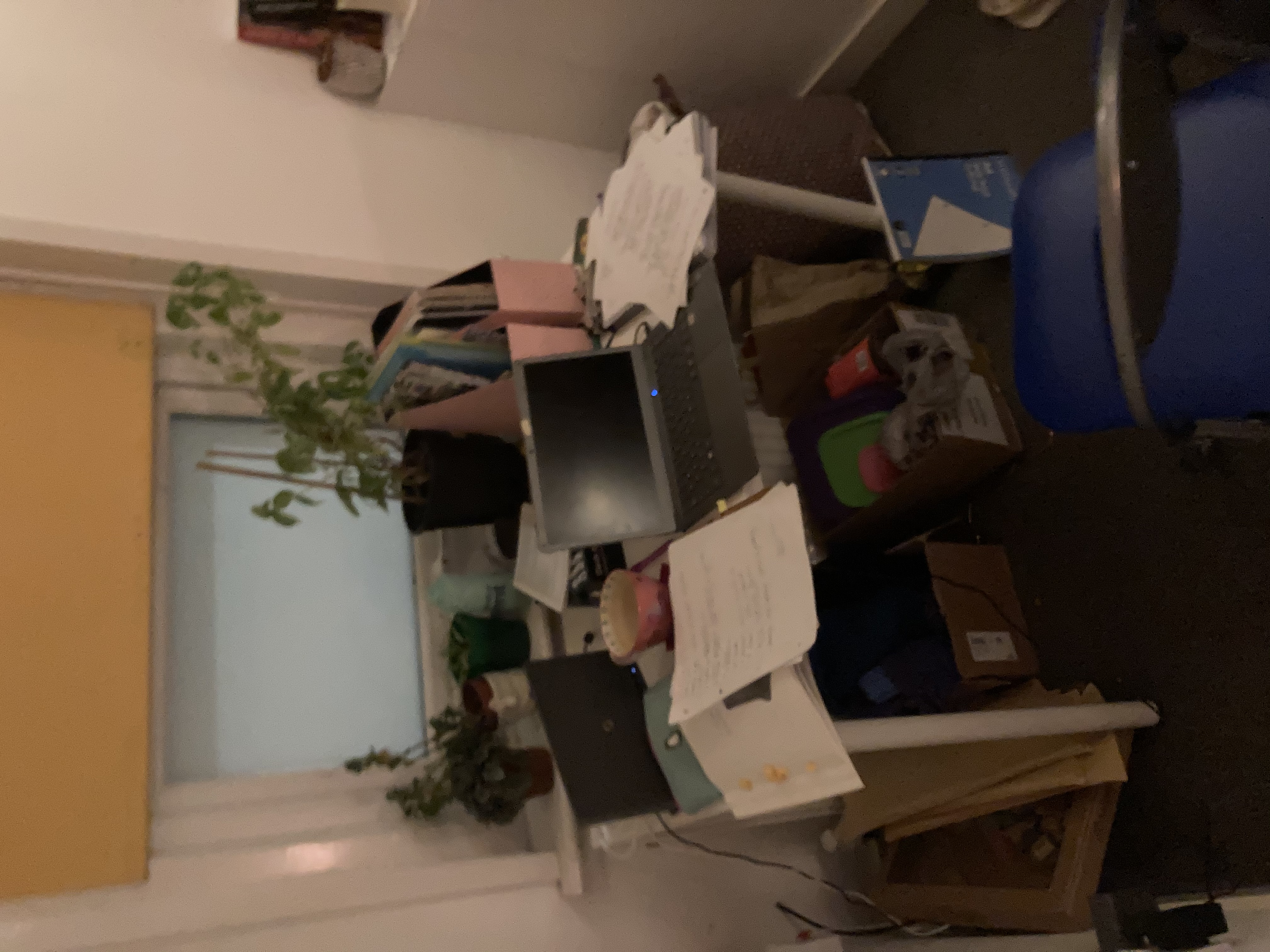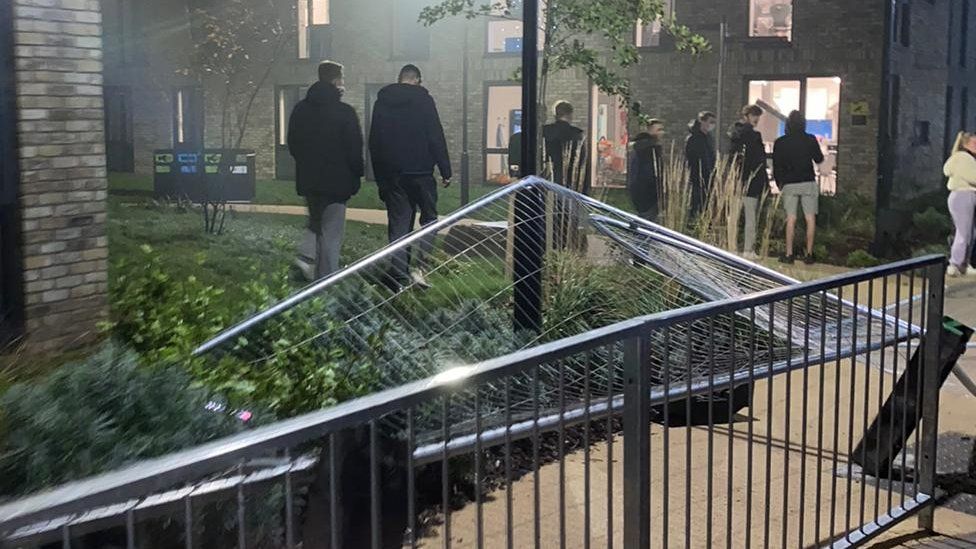Feed URL: https://blogs.kent.ac.uk/covidexhibition/2021/05/05/campus-and-covid-19/feed/?withoutcomments=1
Campus and Covid-19:
By Maya Younger
Introduction:
The campus is at the heart of many universities across the country. In normal times, thousands of students pass through their respective campuses every day, learning in lectures, studying in the libraries, or living in accommodation. As such, a good campus can be a key factor in which university a person chooses to study at. Walking across campus can make you feel like you are surrounded by like-minded people, doing exactly what you are meant to be doing now.
However, as is the case with so many things, everything on university campuses shut down incredibly suddenly in March 2020. Since then, the status of these campuses has been ambiguous, from uncertainty during the summer and the first lockdown of when we could return to living there, to the somewhat empty promises of blended learning in the autumn term. By September, thousands of students across the country found themselves trapped in isolation in their accommodations, with people who were strangers just a few weeks before. With a lack of access to in-person lectures, and to the campus itself, many students are calling for a refund in their university fees.
The heart of universities suddenly stopped beating last year. There have been many arguably futile attempts to make sure university is the same during Covid-19 as it always was before, but without access to a normal campus, this may not be possible.
Exhibit 1 – A Home on Campus
The last time I was at a normal event on campus, I was wearing a bedsheet toga. I was in a production of Aristophanes’ Frogs with the Kent Classical and Archaeological society which we had rehearsed for months in seminar rooms, and which was planned to take place in a lecture theatre in late March 2020. We decided to film and upload the play early due to new restrictions. I left my on-campus accommodation, pictured above, a home I was meant to keep until June, for the last time the next day.
Earlier that week the only thing I had been worried about was a presentation I was doing in a lecture. As “young and reckless” students, the threat of the pandemic just did not seem real to us– we were worried about other things. I do not think anyone realised just how bad it was until campus suddenly closed, due to new restrictions and the fear of this unknown virus. There were online lectures after that, but all students were given a no-detriment policy to prevent their grades from being worsened by the stress of a pandemic and lack of access to resources on campus.
Photo Credit: Maya Younger
Exhibit 2 – Students Isolating in their Accommodation

In the lead up to the start of term in September 2020, first-year students were encouraged by universities across the country to still come to their campuses and not defer their place. Students were told that they would have a first-year experience as similar to normal as possible. However, as hundreds of students in halls were testing positive for Covid-19, thousands of them, many of whom had just moved out for the first time, found themselves in isolation with complete strangers. Isolating students were entirely dependent on university staff to bring them food and supplies, which often were not sufficient. In one case at the University of Nottingham, students in on-campus accommodation were given no food except one ready meal in an entire day (Bevis, 2020). The pictures of post-it notes on the windows of student accommodation exemplify the struggles of students confined to their halls, and the lack of normality there has been on campuses across the country.
It can be expected that universities are unwilling to refund their students; they had already lost around £790 million by May 2020 (Burkhi, 2020, 758). However, as indicated by the words ‘9k well spent’ on the picture above, many students are frustrated and disappointed in having to pay £9,250 for resources and an experienced they are not receiving. Nearly 600,000 students, I included, signed a government petition earlier this year in a plea to reduce fees: the response was that we should be grateful they did not increase them.
Photo Credit: Paul Ellis via Getty Images
Exhibit 3 – What Campus has Looked Like this Year

On a more personal note, this is what campus has looked like for me this year. I have been living in private, off-campus accommodation, and this is my desk in the chaos of writing an assignment. This desk has become my lecture theatre, library, dining table for breakfast and lunch, and storage for what I could not fit in the small kitchen cupboards. My bed is less than 2 metres behind it, and the kitchen and living room, where I spend the rest of my time are just a few paces away. The dozens of friends and acquaintances I would usually see at lectures are now only silent initials on a zoom call. The entirety of campus has been reduced to just a few cluttered rooms.
With Universities across the country being largely closed or restricted, this condensed, cramped version of what a campus should be is the reality for so many students. While many online lectures, societies, and assistance have been offered online, they are still less accessible than in normal times. It is no wonder that mental health among students has been declining from the start of lockdown (Savage et al. 2020, 1-5), and students’ quality of sleep has declined as they have the entirety of their university campuses in their bedrooms (Wright et al, 2020, 797-798).
Photo Credit: Maya Younger
Exhibit 4 – Fences Around Halls in Manchester
 Perhaps one of the most shocking and definitive stories of campus during COVID 19 is the putting up of metal barriers around halls at the University of Manchester in November 2020. Students who already felt isolated in their campus accommodation now were being fenced in by the university. Pictures of these fences shocked people across the country. Here, students are being treated as untrustworthy people that need to be controlled rather than vulnerable people who are in an unfamiliar city, many of them far from home, who are just trying to access the place they are living in and make the most of their first year of university. The university itself maintains that these fences were put up not to keep students from entering or exiting their accommodation, but instead prevent passers by from entering. However, students were not informed of these measures before they were put into place, and report feeling trapped.
Perhaps one of the most shocking and definitive stories of campus during COVID 19 is the putting up of metal barriers around halls at the University of Manchester in November 2020. Students who already felt isolated in their campus accommodation now were being fenced in by the university. Pictures of these fences shocked people across the country. Here, students are being treated as untrustworthy people that need to be controlled rather than vulnerable people who are in an unfamiliar city, many of them far from home, who are just trying to access the place they are living in and make the most of their first year of university. The university itself maintains that these fences were put up not to keep students from entering or exiting their accommodation, but instead prevent passers by from entering. However, students were not informed of these measures before they were put into place, and report feeling trapped.
University campuses are meant to be a place to comfortably live in, learn in, and have fun. Instead, students found themselves treated with very little respect in halls they were trapped and fenced into.
Photo Credit: Ewan at BBC News: New lockdown: Manchester University students pull down campus fences – BBC News
Exhibit 5 – What next?
 This is a picture from the last time I have been to my university campus, at the start of December 2020. My housemates and I had walked up to get a Covid-19 test so we could go home safely for the Christmas break. The campus which had just earlier that year been buzzing with activity was eerily quiet and has stayed that way for months.
This is a picture from the last time I have been to my university campus, at the start of December 2020. My housemates and I had walked up to get a Covid-19 test so we could go home safely for the Christmas break. The campus which had just earlier that year been buzzing with activity was eerily quiet and has stayed that way for months.
So, what comes next for university campuses? Recently, it was announced that they are reopening on the 17th May. Unfortunately, many students, I included, do not have lectures next term anyway, meaning that we have lost a whole year of in-person teaching. Any students who do have on campus lectures or other meetings after the 17th May will not be able to enjoy them for long because the end of term is less than a month after that. However, the reopening of University campuses brings hope that next academic year, students may be able to return to them and enjoy their time at university.
Photo Credit: Maya Younger
Visitor Challenge:
What is your opinion on university campuses during Covid-19? Do you think they should be open or closed? Do you think students should still be paying for their upkeep? Please feel free to leave your comments.
References:
Bevis, G. “Coronavirus: Nottingham Students ‘Question Logic’ of University Return” BBC News, East Midlands (2020)
Burki, T. K. “COVID-19: Consequences for higher education”, The Lancet: Oncology, 26.6 (2020) p. 758
Savage, M. J. et al. “Mental health and movement behaviour during the COVID-19 pandemic in UK university students: Prospective cohort study”, Elsevier: Mental Health and Physical Activity 19 (2020) pp. 1-5
Wright jr. et al. “Sleep in University Students Prior to and During Stay-at-Home Orders”, Current Biology, 20.14 (2020) pp.797-798
